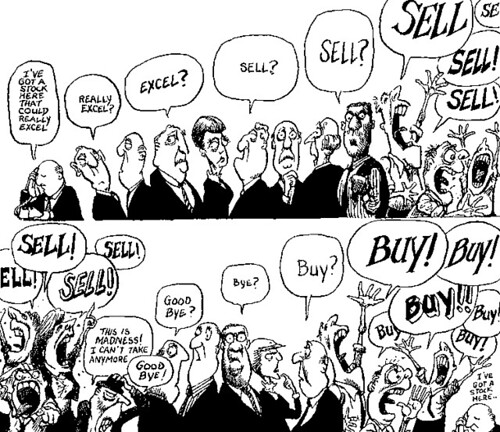Telecommunications
Free My Phone
Cellphone carriers tell us what phones we can use, and what software and services can be offered on those phones. Consumers deserve better.
By WALTER S. MOSSBERG
October 22, 2007
Suppose you own a Dell computer, and you decide to replace it with a Sony. You don't have to get the permission of your Internet service provider to do so, or even tell the provider about it. You can just pack up the old machine and set up the new one.
![[nowides]](http://online.wsj.com/public/resources/images/nowides03202003164521.gif)
OPINION
Now, suppose your new computer came with a particular Web browser or online music service, but you'd prefer a different one. You can just download and install the new software, and uninstall the old one. You can sign up for a new music service and cancel the old one. And, once again, you don't need to even notify your Internet provider, let alone seek its permission.
Oh, and the developers of such computers, software and services can offer you their products directly, without going through the Internet provider, without getting the provider's approval, and without giving the provider a penny. The Internet provider gets paid simply for its contribution to the mix: providing your Internet connection. But, for all practical purposes, it doesn't control what is connected to the network, or carried over the network.
|
| WSJ's Walt Mossberg discusses the problems caused by the restrictions wireless companies place on customers' phones. |
This is the way digital capitalism should work, and, in the case of the mass-market personal-computer industry, and the modern Internet, it has created one of the greatest technological revolutions in human history, as well as one of the greatest spurts of wealth creation and of consumer empowerment.
So, it's intolerable that the same country that produced all this has trapped its citizens in a backward, stifling system when it comes to the next great technology platform, the cellphone.
A shortsighted and often just plain stupid federal government has allowed itself to be bullied and fooled by a handful of big wireless phone operators for decades now. And the result has been a mobile phone system that is the direct opposite of the PC model. It severely limits consumer choice, stifles innovation, crushes entrepreneurship, and has made the U.S. the laughingstock of the mobile-technology world, just as the cellphone is morphing into a powerful hand-held computer.
Whether you are a consumer, a hardware maker, a software developer or a provider of cool new services, it's hard to make a move in the American cellphone world without the permission of the companies that own the pipes. While power in other technology sectors flows to consumers and nimble entrepreneurs, in the cellphone arena it remains squarely in the hands of the giant carriers.
The Soviet Ministry Model
That's why I refer to the big cellphone carriers as the "Soviet ministries." Like the old bureaucracies of communism, they sit athwart the market, breaking the link between the producers of goods and services and the people who use them.
To some extent, they try to replace the market system, and, like the real Soviet ministries, they are a lousy substitute. They decide what phones can be used on their networks and what software and services can be offered on those phones. They require the hardware and software makers to tailor their products to meet the carriers' specifications, not just so they work properly on the network, but so they promote the carriers' brands and their various add-on services.
QUESTION OF THE DAY
![[QOD]](http://online.wsj.com/public/resources/images/it_question01292003210049.gif)
Let me be clear: Any company that spends billions to build and maintain a wireless network deserves to be paid for its use, and deserves to make a profit and a return for its shareholders. Not only that, but companies like Verizon Wireless or AT&T Inc. should be free to build or sell phones or software or services.
What Is Needed
But, in my view, they shouldn't be allowed to pick and choose what phones run on their networks, and what software and services run on those phones. We need a wireless mobile device ecosystem that mirrors the PC/Internet ecosystem, one where the consumers' purchase of network capacity is separate from their purchase of the hardware and software they use on that network. It will take government action, or some disruptive technology or business innovation, to get us there.
CUSTOMIZING YOUR PHONE
![[Go to podcast]](http://online.wsj.com/public/resources/images/it_podcast08102005141132.gif)
PODCAST: The mobile phone has become much more than just a portable communication device. WSJ's Jessica Vascellaro explains some of the ways we personalize our phones both functionally and aesthetically.
To my knowledge, only one phone maker, Apple Inc., has been permitted to introduce a cellphone with the cooperation of a U.S. carrier without that carrier having any say in the hardware and software design of the product. And that one example, the iPhone, was a special case, because Apple is currently the hottest digital brand on earth, with its own multibillion-dollar online and physical retail network.
Even so, Apple had to make a deal with the devil to gain the freedom to offer an unimpaired product directly to users. It gave AT&T exclusive rights to be the iPhone's U.S. network for an undisclosed period of years. It has locked and relocked the phone to make sure consumers can't override that restriction. This arrangement reportedly brings Apple regular fees from AT&T, but penalizes people who live in areas with poor AT&T coverage.
Apple has also, so far, barred users from installing third-party programs on the iPhone, though the company announced last week it will open the phone to such programs early next year. (Web-based iPhone programs -- those that run inside the Web browser -- have been available from day one.)
These restrictions have rubbed some of the luster off the best-designed hand-held computer ever made.
A few other "smart phones" sold primarily to businesses have been freer of carrier restrictions on third-party software and services than typical cellphones. But even these handsets, such as Palm Treos, Windows Mobile devices, and BlackBerrys, have been partly crippled by carriers in some cases.
As a technology reviewer, I have met with multiple small companies that had trouble getting their programs onto consumers' phones without the permission of the carriers; getting that permission often requires paying the carriers. Sure, there are some clumsy workarounds that can evade the carrier barrier, but it's nothing like the ability small software companies have had for decades to offer their products for installation on Windows or Macintosh computers.
THE JOURNAL REPORT
![[See the full report]](http://online.wsj.com/public/resources/images/it_computerchip09142004171604.gif)
We also need much greater portability of phone hardware. Because the federal government failed to set a standard for wireless phone technology years ago, we have two major, incompatible cellphone technologies in the U.S. Verizon Communications Inc. and Sprint Nextel Corp. use something called CDMA. AT&T and Deutsche Telekom AG's T-Mobile use something called GSM. Except for a couple of oddball models, phones built for one of these technologies can't work on the other. So that limits consumer choice and consumer power. If you want to switch from AT&T to Verizon, you have to swallow the cost of a new phone.
But the problem is even worse. The government didn't require the CDMA companies to include a removable account-information chip, called a SIM card, in their phones. So, unlike people with GSM phones, Sprint and Verizon customers can't keep their phones if they switch between the two carriers, even though they use the same basic technology. And, the government allows the GSM carriers to "lock" their phones, so a SIM card from a rival carrier won't work in them, at least for a period of time. Techies can sometimes figure out how to get around this, but average folks can't.
The carriers defend these restrictions partly by pointing out that they subsidize the cost of the phones in order to get you to use their networks. That's also, they say, why they require contracts and charge early-termination fees. Without the subsidies, they say, that $99 phone might be $299, so it's only fair to keep you from fleeing their networks, at least too quickly.
But this whole cellphone subsidy game is an archaic remnant of the days when mobile phones were costly novelties. Today, subsidies are a trap for consumers. If subsidies were removed, along with the restrictions that flow from them, the market would quickly produce cheap phones, just as it has produced cheap, unsubsidized versions of every other digital product, from $399 computers to $79 iPods.
The Federal Communications Commission is selling some new wireless spectrum that will supposedly lead to fewer restrictions for technology companies and consumers, but it's far from certain that the carriers, with their legions of lobbyists and lawyers, will allow such a new day to dawn. Google Inc. is making noises about trying to bust open the cellphone prison, with new software and services, but that's no sure bet either.
Remember Landlines?
We've been through this before in the U.S., though many younger readers may not recall it.
Up until the 1970s, when the federal government intervened, you weren't allowed to buy your own landline phone, and companies weren't able to innovate, on price or features, in making and selling phones to the public. All Americans were forced to rent clumsy phones made by a subsidiary of the monopoly phone company, AT&T, which claimed that, unless it controlled what was connected to its network, the network might suffer.
Well, the government pried that market open, and the wired phone network not only didn't collapse, it became more useful and versatile, allowing, among other things, cheap connections to online data services.
I suspect that if the government, or some disruptive innovation, breaks the crippling power that the wireless carriers exert today, the free market will deliver a similar happy ending.














